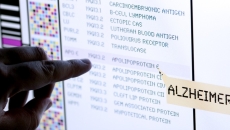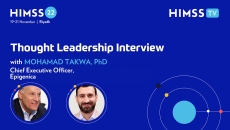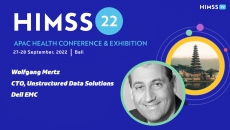Precision Medicine
In a preview of his HIMSS23 presentation, Dr. Cecil Lynch, chief medical information officer at Accenture, describes the current role of genomics in healthcare and discusses how to ensure innovations are more widely used to ensure value-based care.
The new Quantum System One platform, part of a 10 year advanced computing collaboration first announced in 2021, will help accelerate precision medicine research and drug development for an array of medical conditions.
The agency says the current policies, guidelines and controls for the cybersecurity and privacy of genomic data are inadequate and asks the public to comment on proposed use cases and protections.
The technology offers opportunities for care delivery and drug development, says Mohamad Takwa, CEO of Epigenica, a Swedish company that focuses on epigenetic profiling.
With the first cohort of patients onboarded for the RPM program, the center aims to achieve greater treatment compliance and drive oncology innovation with connected medical devices, a patient app and an integrated cloud-based clinician portal.
The chief information officer of NGS offers predictions for 2023 and beyond: human-centered design, AI and automation, enhanced interoperability, using data to close gaps in care, precision medicine advancements and more.
The state's health department has approved the PreciseDx Breast Test lab test which uses artificial intelligence to improve cancer grading and risk categorization
Researchers applied algorithms to data from 200,000 intensive care unit stays at 208 hospitals to develop two models that could help clinicians assess patient risks and apply interventions.
SPONSORED
Improving health outcomes and reducing health inequities.
Wolfgang Mertz, CTO for Unstructured Data Solutions, says Dell Technologies is helping healthcare providers consolidate data – which enables easy access to precision medicine and supports cyber protection strategies.










